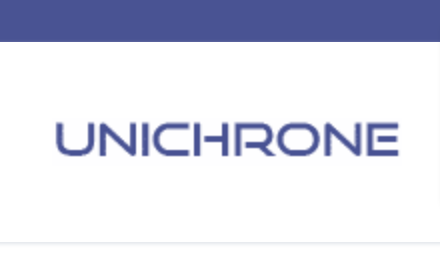Blockchain technology has evolved far beyond the realm of cryptocurrencies. Once synonymous with Bitcoin, it’s now reshaping industries by offering transparent, secure, and tamper-proof digital recordkeeping. From finance to healthcare, blockchain’s impact is growing rapidly. Here’s a closer look at the top eight blockchain use cases driving real-world innovation today.
1. Financial Services and Payments
One of the most established applications of blockchain lies in financial services. Traditional payment systems often rely on intermediaries, which can slow transactions and increase costs. Blockchain eliminates many of these middle layers, allowing peer-to-peer transfers with enhanced security and reduced fees.
Banks are exploring cross-border payments using blockchain to settle transactions in seconds instead of days, transforming global remittances and interbank transfers.
2. Supply Chain Management
Supply chains can be complex, involving multiple parties across different regions. Blockchain ensures end-to-end transparency by recording every movement of goods on an immutable ledger. This helps companies trace product origins, verify authenticity, and prevent fraud.
Industries such as food and pharmaceuticals benefit greatly — for example, ensuring food safety through traceable sourcing and monitoring the integrity of medicine distribution.
3. Healthcare Data Management
Healthcare institutions are turning to blockchain to secure patient data and improve interoperability among systems. With blockchain, medical records can be shared seamlessly across hospitals, labs, and specialists while maintaining data privacy and regulatory compliance.
Patients also gain more control over their health information, accessing and sharing it securely with trusted providers.
4. Identity Verification
Digital identity theft continues to be a major global concern. Blockchain offers a decentralized approach to identity verification, allowing individuals to manage their own digital credentials without relying on centralized authorities.
This use case is particularly valuable for online banking, e-commerce, and KYC (Know Your Customer) processes — enhancing trust and reducing fraud.
5. Real Estate and Land Registry
Real estate transactions often involve multiple stakeholders and lengthy paperwork. Blockchain streamlines the process by recording property titles, ownership transfers, and contract terms on a shared ledger.
Governments in several countries are piloting blockchain-based land registry systems to reduce disputes, eliminate forgery, and improve transparency.
6. Voting Systems
Blockchain’s security and transparency make it a strong candidate for digital voting systems. Votes can be recorded immutably, reducing the risk of tampering and ensuring voter anonymity.
While still in the experimental stage, blockchain-based voting could revolutionize elections by increasing trust in democratic processes and boosting voter participation.
7. Energy Trading
In the energy sector, blockchain enables peer-to-peer energy trading, where consumers with solar panels can sell excess electricity directly to others. These systems use smart contracts to automate transactions, promoting efficient energy use and reducing dependence on centralized grids.
Such initiatives align with the global push for sustainable and decentralized energy solutions.
8. Intellectual Property Protection
Artists, writers, and inventors can use blockchain to protect intellectual property rights. By timestamping digital creations on an immutable ledger, creators establish verifiable ownership and prevent unauthorized use.
This is particularly valuable in the digital art and NFT (non-fungible token) spaces, where provenance and originality are crucial.
Build Your Career in Blockchain
As blockchain adoption continues to accelerate, professionals with blockchain expertise are in high demand. Understanding the fundamentals and practical applications of this technology can open doors to roles in finance, supply chain, cybersecurity, and software development.
Those looking to strengthen their skills can explore Blockchain Training from Unichrone, a globally recognized professional training provider. The course helps participants gain hands-on knowledge of blockchain concepts, tools, and real-world use cases — preparing them for certifications and career advancement in this emerging field.
Unichrone’s training programs are designed by industry experts and focus on practical implementation, ensuring learners stay ahead in a technology-driven job market.
Frequently Asked Questions (FAQs)
1. Is blockchain technology only useful for cryptocurrency?
No. While it originated with Bitcoin, blockchain now powers solutions across industries like supply chain, healthcare, real estate, and more.
2. How secure is blockchain?
Blockchain uses cryptographic encryption and decentralized consensus, making it extremely difficult for unauthorized parties to alter records.
3. Can small businesses benefit from blockchain?
Yes. Many startups and SMEs are adopting blockchain for transparent payments, contract automation, and identity management.
4. What challenges does blockchain face?
Key challenges include scalability, regulatory uncertainty, and integration with legacy systems. However, ongoing innovations continue to address these issues.
Final Thoughts
Blockchain is steadily transitioning from an experimental concept to a core infrastructure technology. Its ability to enhance trust, transparency, and efficiency across industries highlights a future where decentralized systems could become the norm.
As adoption increases, understanding these top blockchain use cases can help businesses and individuals stay ahead in an increasingly digital and data-driven world.





